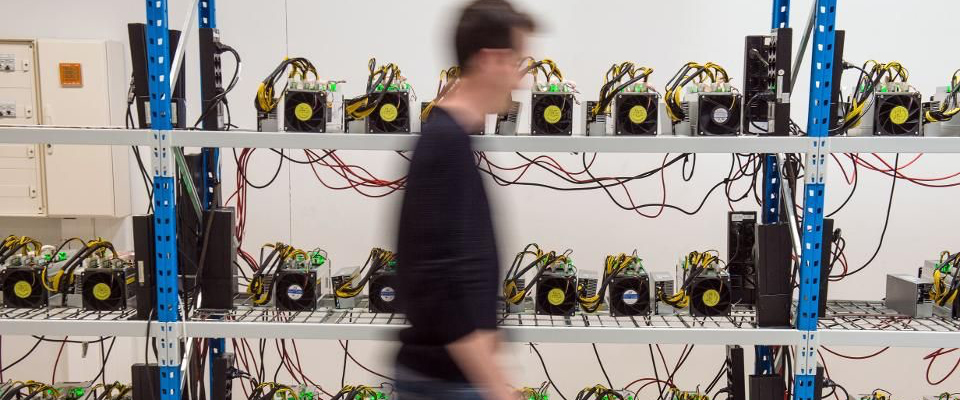
Last Wednesday, the founder of the mining operation Btc.top announced a proposal that would fund Bitcoin Cash (BCH) development over the course of six months. Over the last five days, the funding plan has been the most dominant conversation within the BCH ecosystem, as supporters debate the merits of the miner’s proposal. This week, BCH community members heard from the developer Imaginary Username, Bitcoin Unlimited’s Peter Rizun, and an opposing mining operation that dislikes the funding plan’s details.
Also Read: Bitcoin Cash Miners Plan $6M Development Fund by Leveraging Block Rewards
BCH Infrastructure Development Plan Continues to Be Scrutinized
This week Bitcoin Cash supporters have been conversing about the recently announced miner-funded development plan that was met with mixed reviews. When the idea was first announced it seemed like BCH proponents were enthusiastic, but there were individuals who disliked the concept right away. News.Bitcoin.com recently reported on Btc.top founder Jiang Zhuoer answering questions about the subject in a Reddit ask-me-anything (AMA) thread. The same day, Bitcoin ABC developer Amaury Séchet published a post about the funding subject as well. Séchet said the funding idea is “great news” just as long as the details of the funding arrangement are done right. Following the AMA and Séchet’s opinion, Bitcoin.com and Electron Cash developer Jonald Fyookball also published articles concerning the subject.

BU’s Peter Rizun Shares His Thoughts
The debate is still one of the trending subjects on the read.cash blog and the Reddit forum r/btc today. The subreddit’s moderators even had to create a mega-thread in order to organize all the discussion that was taking place in regard to the miner-funded development concept. On January 26, Bitcoin Unlimited’s chief scientist Peter Rizun shared his opinion about the proposal and noted that the plan could become “corrupt.” “Despite the best of intentions, the developer service fee, AKA dev tax, will corrupt BCH,” Rizun insisted. “It represents a departure too far both from our core principles and from bitcoin as peer-to-peer electronic cash.” Rizun cited a number of issues he has with the developer (infrastructure) fee proposal (IFP), which he says is a more accurate description than a “dev tax.”

“Although the service fee would create a reliable and stable mechanism to transfer money from investors to select developers,” Rizun’s opinion post discussing the IFP idea stressed. “Such a protocol change comes with great cost. Bitcoin Unlimited’s (BU’s) mandate is to foster the development and growth of ‘Bitcoin: a peer-to-peer electronic cash system’ as described in the white paper. It is my opinion that BU would not condone this radical departure that hard codes a third-party into the protocol,” Rizun added. The BU developer continued:
It is bad enough that mining is centralized to the point where it might be feasible for a cartel of miners to impose a tax on block rewards. The fact that the community is seriously considering modifying the protocol to kill-off this cartel’s competition is sickening. As Satoshi said, ‘the first transaction in a block is a special transaction that starts a new coin owned by the creator of the block.’ The community must reject any change to the protocol that would make this no longer so.
Imaginary Username Provides Alternative Ideas
The developer Imaginary Username also wrote a blog post about the subject and the read.cash thread has garnered the author more than $1,000 in BCH tips so far. Imaginary dislikes the current proposal’s specifics and has offered a number of alternative ways developers can be funded. The engineer wrote that funding could stem from direct capital investment, sponsorship, holder contributions and voluntary miner payments over mandatory miner payments. Imaginary suggested his own proposal whereby “six large holders each with 100,000 BCH can contribute $1 million each, 3% of their holdings each, and the mining tax proposal’s amount will be matched.” Imaginary’s read.cash blog post added:
They can do it every year and still come out with a huge profit, assuming the scaling benefits propel BCH to match today’s ETH market capitalization several years later. The more large holders join this proposal, the greater their returns vs investment – and it is profitable for [each of] them regardless of how many ‘freeloaders’ there are.
— imaginary_username (@im_uname) January 26, 2020
The software engineer says that his idea should be secured with a “Mecenas contract that releases each six month’s payments to Bitcoin ABC, or their designated agent, in monthly allotments.” Imaginary concedes by highlighting that a tool can be provided to interested holders and they can coordinate in private and tally data on a public website. “The transaction is made valid once inputs exceed the desired amount, and scheduled delivery via Mecenas contract can begin [and] this process is repeated every six months,” the developer wrote.
An Unknown Shadow Miner Speaks Out Against the Infrastructure Development Plan
Lastly, on January 27, a person called “Shadow Kwh” published a post on read.cash claiming to be an unknown miner who doesn’t like the miner-funded plan. “We are a group of North American and European miners representing, at this point in time, 1.6 exahash/s — We will represent 2.5 exahash/s come May 2020 due to expansion amongst our companies,” Shadow said introducing themselves. Shadow’s post also said the mining operation members are “empathic with protocol developers lack of funding.” They noted that the issue must be resolved over the long term. The miners then insisted that the Bitcoin Cash difficulty adjustment algorithm (DAA) has been “gamed” for quite some time and the operation stressed the funding plan will make matters worse. Shadow believes that if the four signatories’ mining pools will not debate the plan it will be “totally unacceptable.”

“We will start withdrawing our support for the signatory pools and move to other pools for the time being,” Shadow’s blog post adds. “We will in the short term launch a competing BCH pool to offer a voice to miners that disagree with the proposal — We will [also] voluntarily donate 1% of our income to development teams while offering a voice to our miners on how to donate it.” The group dubbed Shadow Kwh concluded by stating:
Assuming the proposal is not withdrawn or modified to be acceptable, we will continue to mine up to the hard fork, which will create our own chain after the fork due to the consensus rule change introduced by the signatories. We definitely plan to obtain more hashrate than the signatories can muster. The market will need to decide in the days following the fork.
As far as time is concerned, there’s still around four months until the proposal would take effect, if the four signatories’ mining pools enact the plan. The proposal will also follow the upcoming BCH reward halving in the spring, which will be an exciting event on its own. A great number of BCH community members, influencers, developers, business executives, and everyday users continue to talk about the BCH miner-funded development daily ever since it was announced by Zhuoer. As the debate rages on and the days get closer toward enacting the proposal, news.Bitcoin.com will be there to keep our readers informed of the latest developments.
What do you think about the new proposal for miners to fund BCH infrastructure development? Are you for or against the current infrastructure funding plan announced by Btc.top’s founder Jiang Zhuoer? Let us know in the comments section below.
Images courtesy of Shutterstock, fair use.
Did you know you can buy and sell BCH privately using our noncustodial, peer-to-peer Local Bitcoin Cash trading platform? The local.Bitcoin.com marketplace has thousands of participants from all around the world trading BCH right now. And if you need a bitcoin wallet to securely store your coins, you can download one from us here.
The post Heated Debate Continues Over Bitcoin Cash Infrastructure Funding Plan appeared first on Bitcoin News.
from Bitcoin News https://ift.tt/2sY5mEq
Comments
Post a Comment